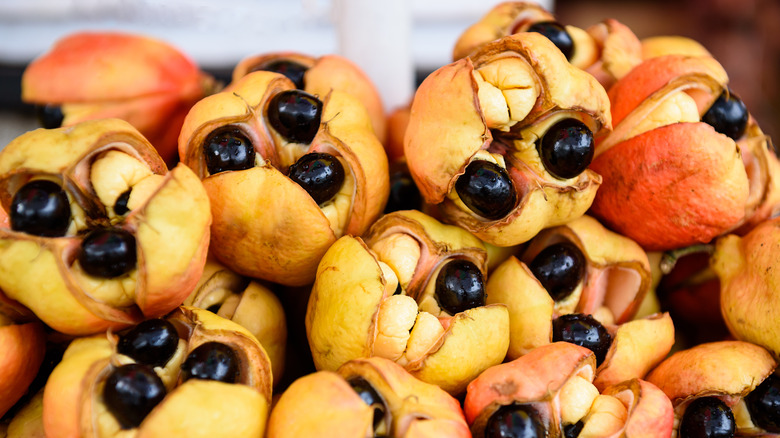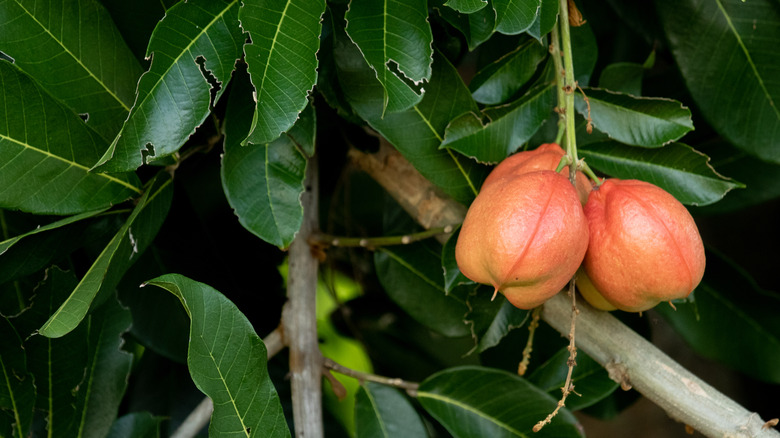The Real Reason Ackee Can't Be Imported Into The US
Even in the land of the free, there are some foods people are forbidden to eat. Despite feeling restrictive, the reason the government usually does this is for safety — or to protect animals and the environment. Ackee, scientifically known as Blighia sapida (via Jamaica Information Service), the national fruit of Jamaica, is one such outlawed food — at least in raw form, per HC Org.
According to the Jamaica Information Service, ackee is native to West Africa but has since thrived on their island. Jamaicans cultivate and eat it in large quantities, pairing it with dishes like codfish or pork. This makes them unique. While its towering trees now grow (up to 50 feet tall) across the Caribbean and in parts of Central and South America, as well as Florida, ackee is only regularly consumed by Jamaicans.
Warmly colored in shades of red and yellow, the pear-shaped ackee fruit opens up to show off its black seeds when ripe. Aril (the extra seed-covering) is what differentiates the two varieties of ackee: yellow and soft is Butter, while creamy and hard is Cheese. Per OFW Law, ackee packs plenty of fatty acids, protein, vitamin A, and zinc in its fruit. So, shoppers may find it canned and frozen on U.S. shelves. Domestic growers provide some of this product, but anybody trying to import ackee from beyond U.S. borders can't do so if it's raw. Additionally, they must prove they brought in completely ripe, seedless, and rindless ackee. But why?
Ackee drops blood sugar to lethal levels
Buyer beware: Ackee can kill. When someone eats an ackee apple, a substance in the fruit may cause their blood sugar levels to plummet by blocking the flow of glucose in the body. Let their blood sugar get too low, and they could pass away (via HC Org). According to The Spruce Eats, there may also be a lot of throwing up involved in the process. Hypoglycin is the poison responsible for this, but it naturally disappears if the ackee is properly picked and prepared. This entails harvesting it only when it's ripe, ridding the arils of red fiber, and disposing of the cooking-water after the fruit is boiled (via Jamaica Information Service).
That's why the U.S. government has such harsh regulations set in place for its importation from foreign countries. The fruit's somewhat bitter and nutty taste may be worth it to some, especially those looking to experience Jamaican cuisine, but it sounds like there's good reason to be wary of ackee.

